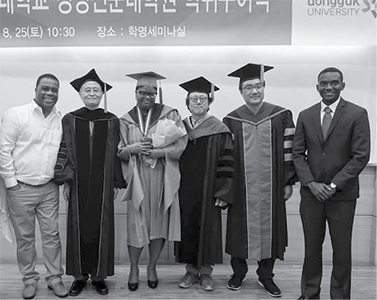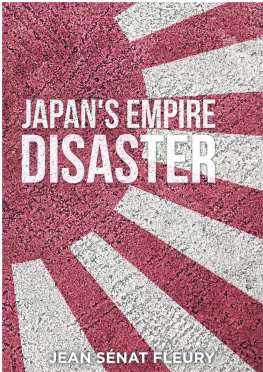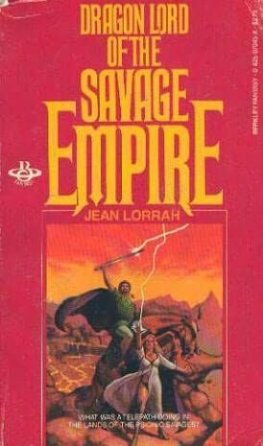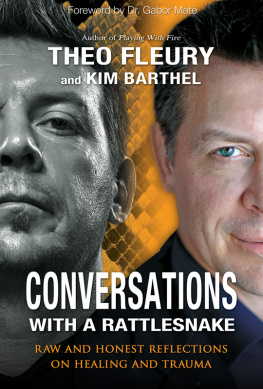Jean Sénat Fleury - The Japanese Empire Disaster
Here you can read online Jean Sénat Fleury - The Japanese Empire Disaster full text of the book (entire story) in english for free. Download pdf and epub, get meaning, cover and reviews about this ebook. year: 2021, publisher: Xlibris Corp, genre: Politics. Description of the work, (preface) as well as reviews are available. Best literature library LitArk.com created for fans of good reading and offers a wide selection of genres:
Romance novel
Science fiction
Adventure
Detective
Science
History
Home and family
Prose
Art
Politics
Computer
Non-fiction
Religion
Business
Children
Humor
Choose a favorite category and find really read worthwhile books. Enjoy immersion in the world of imagination, feel the emotions of the characters or learn something new for yourself, make an fascinating discovery.
- Book:The Japanese Empire Disaster
- Author:
- Publisher:Xlibris Corp
- Genre:
- Year:2021
- Rating:3 / 5
- Favourites:Add to favourites
- Your mark:
- 60
- 1
- 2
- 3
- 4
- 5
The Japanese Empire Disaster: summary, description and annotation
We offer to read an annotation, description, summary or preface (depends on what the author of the book "The Japanese Empire Disaster" wrote himself). If you haven't found the necessary information about the book — write in the comments, we will try to find it.
The Japanese Empire Disaster — read online for free the complete book (whole text) full work
Below is the text of the book, divided by pages. System saving the place of the last page read, allows you to conveniently read the book "The Japanese Empire Disaster" online for free, without having to search again every time where you left off. Put a bookmark, and you can go to the page where you finished reading at any time.
Font size:
Interval:
Bookmark:
JAPANS
EMPIRE
DISASTER

JEAN SNAT FLEURY
| Library of Congress Control Number: | 2020921068 | |
| ISBN: | Hardcover | 978-1-6641-3871-1 |
| Softcover | 978-1-6641-3870-4 | |
| eBook | 978-1-6641-3869-8 |
All rights reserved. No part of this book may be reproduced or transmitted in any form or by any means, electronic or mechanical, including photocopying, recording, or by any information storage and retrieval system, without permission in writing from the copyright owner.
Any people depicted in stock imagery provided by Getty Images are models, and such images are being used for illustrative purposes only.
Certain stock imagery Getty Images.
Rev. date: 01/22/2021
Xlibris
844-714-8691
www.Xlibris.com
812681
To my wife, Joanna Gleason
Revisiting history: it is not the privilege of a few, or a negotiable right poorly granted or questioned by the State. It is, first, a necessity. It is also the inescapable current brought by the evolutionary points of view of the successive generations. It is, at the same time, an indispensable step if one wants to keep alive the memory of the People.
Jules Roy, The Trial of Marshal Ptain
As for the people I am accusing, I do not know them, I have never seen them, and I have no rancor or hatred against them. They are for me only entities, spirits of social malfeasance. And the act I am doing here is only a revolutionary way to hasten the explosion of truth and justice.
I have only one passion, that of light, in the name of humanity that has suffered so much and who has the right to happiness. My fiery protest is only the cry of my soul. So, lets dare translate me into the Assize Court and let the investigation take place! I wait.
Emile Zola, I Accuse!
Manchuria, 19311933
The Far East, 19301941
The Japanese Advance in the Pacific, 1942
War in the Pacific, 19411945

August 25, 2018: Dongguk University, Seoul, South Korea,
Jennifers graduation. In this picture from the left to the right:
Jean Snat Fleury, Prof. Kim Jinsum, Jennifer Fleury, Prof.
Lee Sang Hogun, Prof. Jung UK, and Pascal Justin.
M ay 2018, I received an email from my daughter Jennifer inviting me to Seoul for her college graduation. She had just finished her degree in global finance at Dongguk University. Two days later, I called her to confirm that I would attend. I was excited. First, I could see my oldest daughter years after she left our home in Boston. Second, a visit to South Korea would offer me the opportunity to learn more about the part of World War II that happened in the Far East and the Pacific. My interest and concern about the war was more than a curiosity. My bridge partner Richard Silverman who passed away twelve years ago was a World War II veteran. He was nineteen years old when having to fight ashore during the invasion of Normandy in Operation Overlord. One of the great benefits of Richards friendship was the opportunity to hear him tell his stories about the war and then about what life was like for him afterwards.
It was my 19th birthday, he said. Escaping my plan to go to college, I decided to join my older brother at war. After the German army invaded France, in June 1944, I was posted at Colmar, a small town located fifty miles away from the German border. I participated in the liberation of Strasbourg during the Alsace Campaign (November 1944March 1945), in the last months of the Second World War.
They told us it would be a difficult task. However, I didnt expect to go through a suicide mission. The fighting was brutal. We ran into some Panzer divisions nobody seemed to have knowledge of their existence. In the morning of January 5, 1945, four months before World War II ended in Europe, I was captured and sent to a labor camp near Dresden, Germany, at 390 miles away from Strasbourg. The camp commandant in broken English told me: American prisoners were simply killed after they arrived here. We shot them like animals. Almost naked, I saw the laughing German commandant who was standing some two meters from me and screaming his injurious words in my face.
Fate intervened. Two months later, British and American planes began raining firebombs on Dresden. The prison camp took a direct hit and I was able to escape through a broken wall. The horrors I saw over the last sixty days that I spent at the camp would haunt me for the rest of my life. Being a witness to such war crimes was a tragic experience that I dont want to remember, and I dont want anyone to ever endure.
In 2010, I met Mario Sullivan during the National Bridge Tournament in Las Vegas, United States. Deployed to the Pacific two years after the Japanese attacked the United States Naval Fleet at Pearl Harbor, Mario also was a veteran of WWII. Initially, he was put to work cataloging thousands of encrypted Japanese radio messages that American listening posts were intercepting each day. Japanese leaders using German technology believed messages encrypted by the German Enigma machines that could generate 103 sextillion combinations, and messages encrypted with the katakana characters (the phonetic Japanese script), were all but unbreakable. However, in the months since the start of the war, the Intelligence Unit (HYPO), under Captain Joseph Rochefort, had developed sophisticated decrypting techniques. Using coding clues picked up from the papers of a downed Japanese aircraft at Pearl Harbor, Rochefort and his team broke the JN-25 Code.
I didnt really know what war was, Mario said. I only knew it was an armed conflict between two or several nations, and all the countries involved have to respect international law. I was wrong. From my experience in the Pacific and East Asia, I learned another side of going to war. The Japanese were very brutal to their prisoners. A soldier who decided to surrender rather than die would be used for medical experiments and target practice. Allied prisoners of war captured by the Japanese were beaten to death, beheaded, buried alive, cut into pieces, and in some cases eaten by starving to death Japanese soldiers. Then Mario continued, Thousands of American POWs during World War II were made to work in a very harsh environment in Japans War industry. Many of them died of starvation, illness, or abuse. Those POWs were routinely beaten, starved, and abused. They were forced to work in mines and factories in violation of the Geneva Conventions.
As we became friends, Mario often explained how those years of war had permanently changed his life. He was a young college student when he was told the country needed volunteers to fight the Germans and the Japanese during World War II. He accepted without hesitation to engage in the army. I didnt dream a career in the Armed Forces, said Mario, but I really believed it was my duty to serve the United States of America and defend the Democratic Ideals.
I felt lucky to have met these two men who fought worlds away from each other: Richard in the Atlantic and Mediterranean, and Mario in the Pacific and Southeast Asia. Memories of them and the stories they told persuaded me to research and write books about World War II for my own education and for readers yet unknown to me. The inspiration for my first book Adolf Hitler: Trial in Absentia at Nuremberg came from conversations with Richard who believed it was a mistake for the Allies not to accuse, indict, and try Adolf Hitler in absentia at Nuremberg. He said this was because, at the time of the trial, the prosecutors were unsure whether Hitler was alive. In fact, at the end of May 1945, the Soviet Russian dictator, Joseph Stalin, had declared to the American delegation led by William Inverell Harriman that Hitler was alive, hidden somewhere with his private secretary Martin Bormann and his chief of staff Hans Krebs. Later, Stalin declared to Churchill that Hitler had fled by submarine to Japan, and he could be in Argentina or Spain. The five Red Army law clerks, who examined the remains of Hitler on May 8, 1945, did this work clandestinely. The simple statement of German Gestapo, Heinrich Muller, revealing to the U.S. CIC, that he had arranged the escape of Hitler to Barcelona, on April 22, 1945, is an element of doubt sufficient to consider Hitler as disappeared at this time and allow his trial at Nuremberg.
Next pageFont size:
Interval:
Bookmark:
Similar books «The Japanese Empire Disaster»
Look at similar books to The Japanese Empire Disaster. We have selected literature similar in name and meaning in the hope of providing readers with more options to find new, interesting, not yet read works.
Discussion, reviews of the book The Japanese Empire Disaster and just readers' own opinions. Leave your comments, write what you think about the work, its meaning or the main characters. Specify what exactly you liked and what you didn't like, and why you think so.





